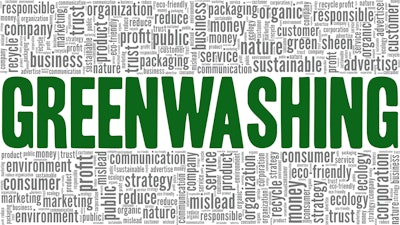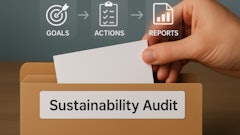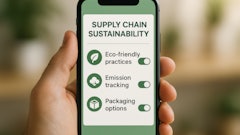
New research from Ivalua has found that more than half (53%) of organizations are concerned that they could be at risk of unintentional greenwashing. With pressures from customers and regulators on the rise, the spotlight is on organizations to ensure all green claims are legitimate.
The study reveals that less than half (44%) of organizations claim they are “very confident” that they can “accurately” report on Scope 3 emissions. While nearly two-thirds (61%) say reporting on Scope 3 emissions feels like a ‘best-guess’ measurement.
“Organizations are aware they must urgently address sustainability and understand the cost consequences of not doing so. But this lack of confidence paints a negative picture,” says Jarrod McAdoo, director of sustainable procurement at Ivalua. “A lack of perceived progress could fuel accusations and fears of greenwashing, so it’s important to remember that obtaining Scope 3 data is part of the natural maturation process. Many sustainability programs are in their infancy, and organizations need to start somewhere. Estimated data can help determine climate impact and contribute to building realistic, actionable net zero plans. Over time, organizations will need to make significant progress on obtaining primary Scope 3 data and putting plans in place, or risk financial penalties as well as ruining reputations in the long run.”
Key Takeaways:
- The research also shows nearly two-thirds of organizations agree that the cost of not taking action will far outweigh the cost of implementing green initiatives. But while 87% of organizations are confident, they’re on track to meet net zero targets, many don’t have comprehensive, fully implemented plans in place for adopting renewable energy (77%), reducing carbon emissions (73%), adopting circular economy principles (73%), reducing air pollution (71%) and reducing water pollution (68%).
- Working with suppliers will be critical in achieving net zero. The research found that over half (55%) of organizations agree that green initiatives to reach net zero goals that don’t involve suppliers are a waste of time. Ineffective supplier collaboration (26%) was also among the top challenges organizations must overcome, with other challenges including other objectives being prioritized, such as cost and risk (27%), supplier resistance to reduce emissions (26%), supplier inability to assess emissions (25%), poor visibility into sub-tier suppliers (22%) and incomplete, absent or unreliable data on sustainability (22%).



















